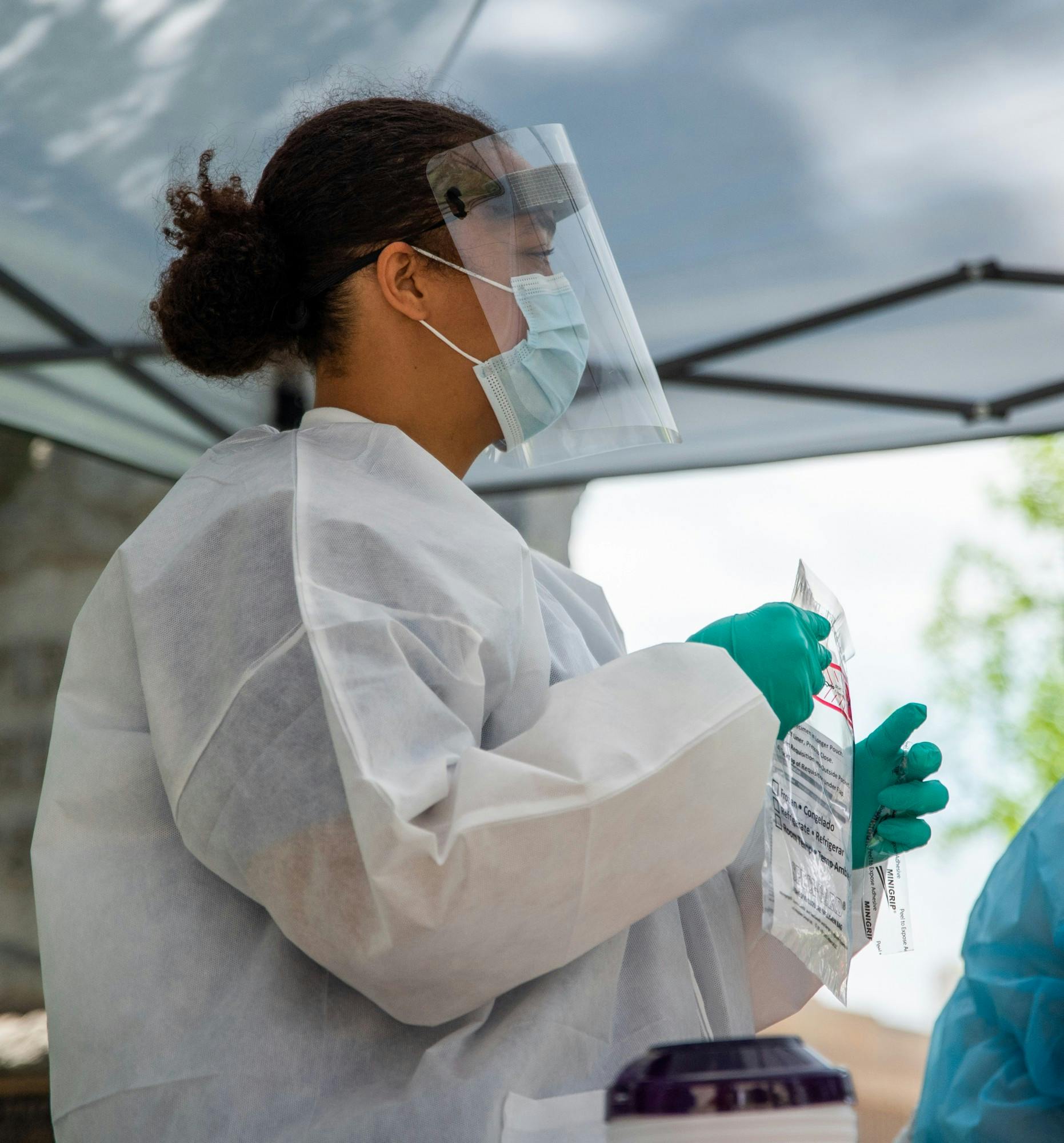Are you, or someone close to you, worried you may have been exposed to COVID-19? Tests are available at all of the below locations or events. Need for payment, insurance, doctor's orders or presentable symptoms may vary.
Non-appointment:

Kisha Nason works in the tent performing COVID-19 testing at the Black Lives Matter rally at the Capitol on June 29, 2020.
Are you, or someone close to you, worried you may have been exposed to COVID-19? Tests are available at all of the below locations or events. Need for payment, insurance, doctor's orders or presentable symptoms may vary.
Non-appointment:
Appointment only:
Should you get tested?
According to the Centers for Disease Control and Prevention (CDC) website, people who have been infected with COVID-19 have reported a wide range of symptoms from mild to severe that appeared 2-14 days after exposure, including but not limited to:
The CDC said that older adults and people who have severe, underlying medical conditions like heart or lung disease or diabetes seem to be at a higher risk for developing more serious complications than others.
They advise that you seek medical attention immediately if you develop any of these possible emergency warning signs:
Lynn Sutfin, public information officer for the Michigan Department of Health and Human Services (MDHHS), said people who are asymptomatic, meaning they might not be currently presenting symptoms but could develop them further down the line, can spread the virus through respiratory droplets same as anyone else.
While there is currently no set vaccine for the virus, hospitals and health care providers are doing all they can to help patients recover swiftly and smoothly. Though a test doesn't necessarily provide you with physical relief, it provides the public with mental relief because they are able to then contact trace — an attempt to slow the spread.
Support student media! Please consider donating to The State News and help fund the future of journalism.
Types of testing
There are two different tests an individual can go through when finding out if they have COVID-19 or not: viral, or diagnostic, tests and antibody, or serology, tests.
According to the CDC website, a viral test reveals if you have a current infection, while an antibody test reveals if you had a past infection.
Viral tests are done through a swab in your nose. These are the most common and results are usually available within a couple hours.
If you test negative at the time your viral sample was collected, it does not mean you won't or can't get sick. For example, you might've tested too early in your infection or before you were infected and came back at a later development testing positive.
Antibody tests are done through a blood draw. Antibodies are proteins that help fight off infections — they provide immunity, or a lesser chance of getting the virus again if you happen to become exposed.
The CDC does not know if those who have recovered can become infected again and advise everyone to continue following the implemented safety procedures until further notice.
No-cost testing
In an article by Market Watch, Vice President Mike Pence spoke on behalf of the country's largest health insurance agencies, who cover at least 240 million Americans, saying people who get tested for COVID-19 don't have to worry about getting surprise medical bills. They will be covered either through private insurance, Medicare or Medicaid.
He said insurers have also agreed to cover telemedicine — talking on the phone with a doctor — and to extend coverage for treatment in all of their benefit plans.
The website Castlight Health conducted a report that took an in-depth look at the out-of-pocket cost possibilities that COVID-19 testing could have on an individual and their family.
The Department of Labor's Wage and Hour Division (WHD) passed the Families First Coronavirus Response, or FFCRA, Act that requires certain employers to provide employees with paid sick leave or expanded family and medical leave for specified reasons related to COVID-19. The provisions have been set since April 1 and will apply through Dec. 31, 2020.